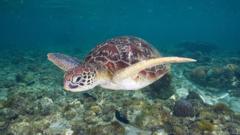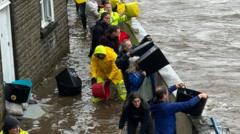Tragic Sea Turtle Consumption Leads to Multiple Deaths in Philippines
In a devastating incident in Maguindanao del Norte Province, three people have died and at least 32 were hospitalized after consuming an endangered sea turtle prepared as a traditional Filipino adobo stew. The tragic event occurred in Datu Blah Sinsuat, a coastal town known for its rich marine resources.
The indigenous Teduray people who consumed the sea turtle experienced severe symptoms, including diarrhoea, vomiting, and abdominal spasms. The incident highlights the ongoing challenge of consuming endangered marine species despite legal protections.
While hunting or consuming sea turtles is illegal under Philippine environmental protection laws, the practice continues in some communities as a traditional delicacy. What makes this situation particularly dangerous is that sea turtles can become toxic when they consume contaminated algae, even if they appear healthy.
The impact of the poisoning extended beyond humans. Local official Irene Dillo reported that some animals, including dogs, cats, and chickens that were fed the same sea turtle, also died. Authorities are currently investigating the exact cause of the deaths.
This is not an isolated incident. In 2013, a similar event occurred in Eastern Samar Province, where 68 people fell ill and four died after consuming a sea turtle found near their village. Most sea turtle species are classified as endangered, and the Philippines strictly prohibits collecting, harming, or killing these marine creatures.
Despite the legal restrictions, some cultures continue to hunt sea turtles for their flesh and eggs, believing they possess medicinal properties. Local councillor Datu Mohamad Sinsuat Jr has pledged to enforce the ban on hunting sea turtles more strictly, hoping to prevent similar incidents in the future.
Most of the hospitalized residents have since been discharged, and the three fatalities were buried immediately, following local traditions. The incident serves as a stark reminder of the potential dangers of consuming endangered marine species and the importance of environmental conservation.
The local community, which typically relies heavily on seafood, was warned about the abundance of alternative food sources. As Irene Dillo pointed out, the village has access to various seafood options like lobsters and fish, making the consumption of sea turtles unnecessary and potentially fatal.
This tragic event underscores the critical need for continued education about environmental protection, the dangers of consuming endangered species, and the potential health risks associated with consuming marine life that may have been exposed to toxic substances.




